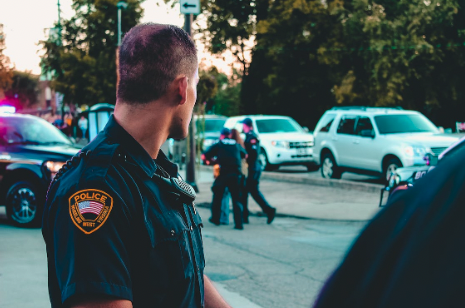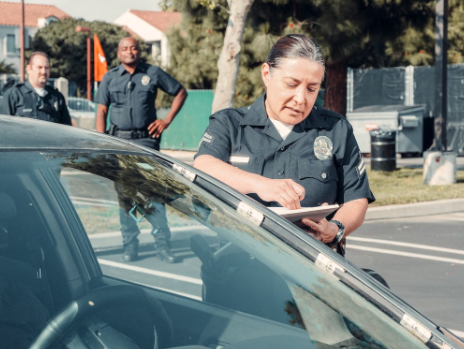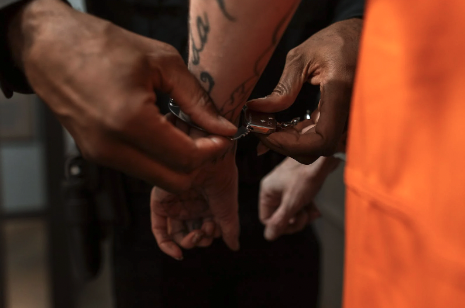A lot of attention has been placed on the role of the police in our society, lately. Regardless of what conclusions you draw, there’s one thing we can all be more aware of: our rights when we’re dealing with them. A criminal record alone can affect your life in a wide variety of ways, and that’s not even considering the various other ways that a police encounter can go bad. As such, here, we’re going to look at your rights, as well as a few common sense tips that can help you get through police encounters safely and smartly.

Invoke your right to remain silent
It’s one of the most widely known rights that an individual has when talking to the police and for good reason: the right to remain silent can save you from further legal trouble. You are not obligated to tell the police where you are going, what you are doing, where you live, or even things like whether or not you are a US citizen. Some lawyers will recommend sharing your name and basic personal information, but you do not have to answer any questions a police officer asks you. However, it is important that you invoke your right to remain. Tell the police that you want to exercise your right to remain silent. Some people think that this might make the police officer more suspicious, but invoking your right to remain silent does count as probable cause.
What are the exceptions to this right?
There are, largely speaking, two exceptions to your right to remain silent. While you don’t have to answer the majority of questions asked by law enforcers, you may have to provide your name when asked to identify yourself, depending on the state, so it’s a good idea to learn the specific law where you are. However, that doesn’t mean you have to answer other questions. If you’re pulled over for a traffic violation, then you also have to provide your license, vehicle registration, and your proof of insurance to the office. Once again, this doesn’t mean you also have to answer questions after doing so.
What if police officers threaten you?
If you’re trying to invoke your right to remain silent and to avoid questioning, the police may sometimes use a tactic of threatening you with further trouble, such as getting a warrant and coming back to search your person, home, or vehicle. They may also threaten a grand jury subpoena in some cases. If you are subpoenaed, you are legally obligated to testify before a grand jury. However, that still doesn’t mean you should answer the questions then and there. In some cases, the threat may be hollow, or the officer might not succeed in getting a subpoena. Even if they were successful, you still don’t have to say anything that can be held against you in a court case, and your lawyer should offer advice on how to go ahead.

Know that you are able to terminate questioning
If you are stopped by the police, you have a right to terminate questioning unless you are being detained. It’s important to keep a cool head when talking to the police, as we have seen many cases where, even unlawful, individuals will escalate a situation to where they are being detained by being overly aggressive. In some cases, it can seem like there’s no way to avoid being arrested by a police officer who has the intent of arresting you. That may well be true, there is no shortage of cops out there willing to cross ethical boundaries. That said, it’s better to get falsely arrested and then have a defense attorney have the charges dropped.
You don’t have to let them search you (under normal circumstances)
Again, unless you’re officially being detained, you don’t have to give the police permission to search you, your person, your belongings, or your vehicle. There are some cases in which this does not apply. For instance, if the police officer suspects that you have a weapon, then they are entitled to pat down your clothing. Again, there are police officers who may carry out searches without the consent of the individual. While you should not resist them physically, you should make a timely and vocal objection. This can help your lawyer show their illegal actions later in court.
If you’re arrested
If the police take a person into their custody, then acting appropriately can be essential for their safety as well as their future legal state. As soon as an individual is not free to stop a line of questioning by the police, they are under arrest. There are cases of wrongful arrest, as police can only arrest an individual that they have seen commit a crime, that they have probable cause to believe an individual has committed a crime, or if there is an arrest warrant out for that person. In the vast majority of situations, you should never attempt to resist arrest, even if the arrest itself is illegal. Not only can you get charged with resisting arrest but you can get seriously hurt, as well. Once more, if you are being detained without reason, searched without reason or otherwise, make a verbal objection, but don’t resist.

See if you can get your freedom
In the vast majority of states, you are able to call for help. Rather than having “one phone call,” as many shows depict, in most cases you are able to get in touch with your family, your attorney, and a bail bondsman. You can also have your family arrange bail bonds for you. Bail bonds allow you to pay a fee to get out of jail until your court date arrives. A bail bondsman provides some assurance that you will appear in court or pay the sum of money set by the court. In many cases, rather than having to spend time waiting in jail, you may be able to get out on bail.
Invoke your right to an attorney
Aside from your family and your bail bondsman, it is crucial that you invoke your right to an attorney as soon as you can. As mentioned, speaking to the police is rarely a good idea as it is very easy to incriminate yourself with your statements, even if you are innocent of a crime and telling the truth. Get in touch with an experienced defense attorney as soon as you can or, if you cannot afford it, consider asking about having a public defender take on your defense. Your lawyer can ensure that you do not incriminate yourself and can make a recommendation on whether you ought to take the case to court or follow another strategy.
What if you think your rights were violated?
There is no shortage of cases in which an individual’s rights were violated by the police. An unlawful arrest, a search without consent or good reason, or an injury during an arrest can all be examples of this. You should make sure that you verbally protest against the action at the time, without resisting physically. If you’re able to, you should note down the officers’ badges and patrol car numbers so that you can reference them to your lawyer or write them down later. Getting photographs of any injuries when your lawyer visits or you are out of jail can prove abuse, too.

Recording the police
If you mean to record the police during an interaction in a public place, then you should only do it at a safe distance. There are instances in which a person who is being questioned has started recording, only for their phone to be mistaken for a weapon. Avoid interfering with the officers in any way, such as not standing close enough to obstruct their movements. If they ask you to stop recording or ask to confiscate your phone, invoke your First Amendment rights and verbally confirm that you do not consent to have your personal property taken or searched. In some states, you may have to verbally state that you are recording them.
Weigh your risks but be careful
Dealing with a police officer can sometimes feel like you’re dealing with a wild animal. They can be unpredictable due to stress, pressures of the job, or for any other number of reasons. When you’re trying to invoke your rights, such as denying consent for a search or trying to record what you believe to be an abuse of the police, the law, and your rights may be on your side, but you should try to gauge how much risk there is in doing so. Even if a police officer’s actions are unlawful, in any given situation, they have the monopoly on violence and the ability to detain you. If you think they are getting agitated or likely to act irrationally, then you should show some caution.
There’s no guarantee how an encounter with the police will go. All you can do is know your rights, act responsibly and appropriately, and ensure that you have the support that you should have.



